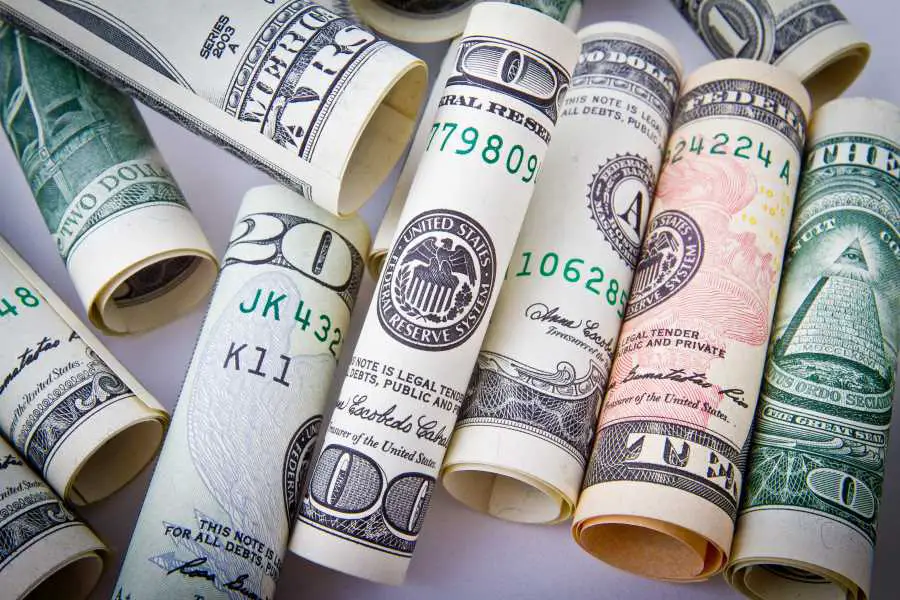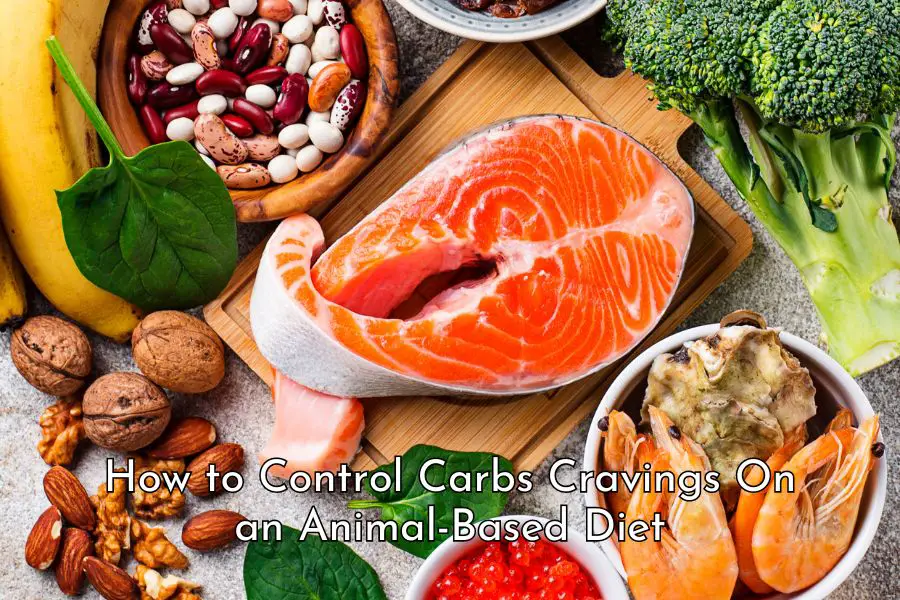When the Fed changed its goal from a “soft landing” to a “growth recession” for the US economy, it’s time to buckle up and pay attention. Some people even predict it is going to be a severe depression, not just a recession.
Nobody knows for sure if it’s going to eventuate or not or how severe it would be if it does, but if you haven’t already planned for that scenario, you should as soon as possible and this post provides strategies and tips to help you with that process.
In the best-case scenario where we end up with a “soft landing” instead, the worst that can happen to you is you’ll end up with a food reserve that would last you half a year or more. But it is much better than the scenario where you struggle to survive or starve if you are unprepared.
Table of Contents
- Stock up on meat, salt, and water
- Cut out all none essential expenses
- Be frugal and resourceful
- Pay off high-interest debt
- Build up an emergency fund
- Diversify your income sources
- Diversify your food sources
- Do not make hasty financial or career decisions
- Have a plan and prepare for the worst scenario
- Prioritize your health
- Work together with your family and friends
- Reach out to help others if you can
Stock up on meat, salt, and water
Meat, salt, and water are the most essential items you need to survive if you are on the carnivore diet.
In the event of a severe recession or economic collapse with mass job losses, further disruption of supply change and prices of essential items skyrocketing, meat and food in general will be the most treasured goods.
So if you can afford to do it now, stock up on meat, salt, and water, enough for you to survive from at least 6 months to a year.
Buy all the meat that you can, buy bulk, buy budget cuts, buy them when they are on sale, and fill up your freezer.
If you have limited freezer space, long-lasting meat like canned fish, canned meat, pemmican, or dry meat will have to do.
Ideally, you should only stock up on foods that you are going to eat but sometimes you will have to stock up on items that you are reluctant to eat now but help you survive in an emergency.
For example, you may not eat canned fish or pemmican usually but you may still want to stock up some if you don’t have a lot of freezer space.
It’s better to waste hundreds of dollars worth of canned fish and pemmican than to starve during a great depression.
With regard to salt, some people don’t use salt on their carnivore diet, but in the event that you run out of meat and need to eat carbs to survive, you will need salt.
So, stock up some salt too, it won’t cost much. You can also use it to trade with other people for items that you want like a can of meat or a few eggs.
Although some argue that dairy is not strictly a carnivore food, if you can handle dairy, milk powder, butter, and cheese (if you have freezer space) can help too.
Water is even more essential than food but it is only in extreme scenarios that you will run out of water or the city water supply is severely disrupted.
If you don’t want or don’t have the means to store water to last you for up to a year, at least aim for a few weeks and think of potential ways that you could secure water if you do run out of stored water (e.g. harvesting rainwater; collecting water from dams, rivers or ponds; filtering or treating water, etc.).
I do hope that you have been able to resolve your health problems, if any, with the carnivore diet.
However, if you have a condition that still requires medications, you do need to stock up on those as well.
Cut out all none essential expenses
Go through your daily expenses and cut out everything that is not essential in helping you survive a recession.
Avoid eating out, buying new clothes, renovating your house, buying gifts, partying, getting a new perm, beauty treatments, or any non-essential travel.
Cancel all non-essential subscriptions from gym membership to Netflix, gaming and music services, magazines, and newspapers.
In short, spend your precious cash on only essentials like water, food, shelter, or medications and cut out everything else.
Be frugal and resourceful
Make your hard-earned money work hard for you so you can stretch it out for a bit longer in tough times.
Below are some tips to help those on the carnivore diet get significantly more out of the same amount of money.
1. Get the cheapest cuts of meat
Buy the cheapest cuts of meat you can find.
Meat is the most nutrient-dense food you can eat. Even if some cheap cuts are not as tender or flavorsome, they are just as nutritious as the more expensive cuts of meat.
If you can, go for ruminant meat like sheep, lamb, goats, bison, and buffaloes because they have slightly better nutritional profiles. But if you can’t, pork, chicken, turkey, or fish are all fine.
2. Buy a lot of fat and organ meat
I believe fat and organ meat are the cheapest meat that you can buy and if you want to stretch your money further, stock up on those.
Fat is your fuel on the carnivore diet and organ meat is the best source of essential nutrients that you can get.
If you run out of muscle meat, you certainly can survive on extremely calorie-dense fat and extremely nutrient-dense organ meat without any issues.
If you want to stock up on these items, you need to visit the butchers in your local area and see what you can get.
You usually can get beef fat, lamb fat, or suet for free or very cheaply (usually less than the cost of dog bones or pet mince).
There are two ways you can store animal fat. One is to keep it in your freezer if you have freezer space. The other is to render it and turn it into tallow which can be kept at room temperature for up to a year without going rancid. It will last even longer in the fridge or indefinitely in the freezer.
As to organ meat, you need to store it in the freezer because it won’t stay fresh for more than 5 days in the fridge. However, if you have a dehydrator, cooking and drying it first and then storing it in the freezer will save up a lot of space (although it won’t taste as nice as fresh organs).
The best organ meat to go for is liver, but of course you can stock up on other organ meat like hearts, kidneys, brains, marrow, pancreas, tongues, lungs, and testicles if you eat those.
3. Consider stocking up on non-carnivore foods as well
Consider stocking up on non-carnivore items like dried fruits, nuts, seeds, rice, flour, rolled oats, pasta, noodles, and cooking oils.
Although they are non-carnivore foods, they are valuable survival food.
If you don’t have the means to store a lot of animal-based food and keep them fresh for long, stocking up on non-perishable plant-based food in your garage can help you survive through the tough times.
It is certainly better to be an alive omnivore than a dead carnivore.
You can also stock up on some honey as well which never goes off.
4. Cut out non-carnivore drinks
If you haven’t already done so, maybe it’s time to reconsider your drinking habit.
Tea, coffee, alcoholic beverages, sports drinks, and energy drinks are not good for your health and they can add up to a lot of money over time.
If you are already on a tight budget, cut those out immediately.
5. Find ways to reduce accommodation cost
Accommodation is one of the biggest ongoing costs for most people and cutting down on accommodation costs can save you a lot of money.
See if you can find a cheaper accommodation, rent out your spare bedroom, or move in with your friends or relatives to reduce your accommodation costs.
Selling your house, paying off the mortgage, and using the leftover money to buy a caravan to live in is not out of the question if you are in a tight financial situation. You don’t want to be forced out of your house on short notice and end up on the street with all your belongings.
6. Save money on utility bills
Below are a few things that you can do to reduce your utility bills:
- Reduce shower time
- Cook in bulk
- Adjust your thermostat (making it 10ºF warmer in the summer and 10°F cooler in the winter can cut down your electricity bills significantly)
- Lower your water heater temperature
- Turn off electronic devices when they are not in use
- Use your dishwasher (hand washing uses a lot more water)
- Turn off aircon and lights when you are out
- Clean your air filters or replace them when needed (if they are filled with dirt and dust, your air conditioner can’t work as efficiently and cost more to run)
- Seal all leaks around windows and doors
- Don’t wash your clothes after a single use if they are not sweaty or dirty
- Run your dishwasher and washing machine when you have a full load only.
7. Go shopping less often
You really don’t need to go shopping very often on the carnivore diet, once a week or once a fortnight should be enough. The less often you go, the less likely that you are going to impulse buy something you don’t need.
8. Stop buying toothpaste
If you eat just meat, you really don’t need toothpaste to clean your teeth.
Try to remove the meat stuck between your teeth first with dental floss and then brush it with warm water or salty water. You’ll find that your teeth are just as clean as when you brush them with toothpaste (which can be full of harmful chemicals). [1, 2]
If you wish, you can mix equal parts of baking soda and water to make a toothpaste that is free from fluoride as well as other additives and costs very little.
Dip your toothbrush into this homemade toothpaste and brush as usual. It has a lightly salty taste but is not unpleasant.
9. Stop or use soap or body wash only when necessary
Your skin has a protective layer of oil called sebum which prevents fluid loss, protects you against pathogens, regulates body temperature as well as protects you from UV light, chemicals, and mechanical injury. [3, 4]
When you wash your skin with soap, it removes the protective oil layer, affects the skin’s pH, dehydrates the skin, and changes the bacterial composition and the activity of enzymes in the skin. [5]
Unless you’ve been six inches deep in cow manure all day or come into contact with chemicals, you don’t need to wash with soap at all (except for when visiting the restroom).
10. Stop using shampoo to wash your hair
Similarly, your hair also has a natural protective oily barrier which will be stripped of when you wash it with shampoo, making your hair dry. Conditioner is then used to put back an oily layer in your hair but that also means exposing your body to more chemicals.
You may need some time to get used to but you really don’t need to wash your hair with expensive shampoos and conditioners, just plain water is the best.
11. Get rid of as many chemicals around your house as possible
In addition to the above, stop buying and using as many chemicals around the house as possible. It’s better for your health and saves you money at the same time.
Apart from detergents, see if you can get rid of other cleaning products, cosmetics, sunscreen, air fresheners, weed killers, insect spray, etc.
Just baking soda and vinegar can replace most cleaning products you are currently using and they are much better for your health as well.
We increasingly spend more time indoors and are exposed to chemicals in our furniture, carpet, cookware, clothes, and footwear already. The fewer chemicals we use, the better it is for us.
You may not save a lot of money from not using toothpaste and shampoo, or reducing other chemical usages in the house, but every little thing adds up and can make a big difference in hard times.
Even if you are in a relatively good financial situation and don’t need to pinch every penny right now, it is still good to remove as many toxins from your living environment as you can.
12. Reduce transport costs
Transport can be a significant ongoing cost for some people.
If you can walk, ride your bike, use public transport, or car-share with others to commute, please do.
Shopping and going out less often or taking advantage of free delivery services can help reduce transport costs too.
Talk to your employer to see if you can work from home or work from home for part of the time.
Shop around for cheaper gas and better insurance deals.
Also, if you drive, follow traffic laws, don’t speed, park legally, and avoid paying fines.
13. Fix, mend, buy second hand and reuse
As mentioned above, in times of crisis, survival is your priority and any expenses that are not for essential items like food, water, shelter, and medications, should be put off.
If you think you need a new pair of shoes, see if you can keep going with the current one for a bit longer or get it mended.
If you need a coat to keep you warm in the coming winter, see if you can buy a second-hand coat, it’ll cost just a fraction of a new one.
Also, see if you can do small repairs and jobs around the house like replacing the tap, mowing the lawn, or fixing the fence instead of hiring others.
Pay off high-interest debt
If you have debts right now, prioritize and pay off the highest interest debts first like credit card debts and personal loans.
In this high-interest environment, it is even more important to pay off those high-interest debts first. The quicker you can pay them off, the more money you have to pay other debts or build up your savings.
Ditch your credit cards for good, spend within your means, and you’ll end up with more money to spend overall.
Some people even go to the extreme of withdrawing cash to spend instead of using a debit card. People tend to think twice about parting with real cash than when they use a bank card.
Build up an emergency fund
If you haven’t already got an emergency fund that you can dig into if you suddenly lose your job or the current income stream, start building one right now.
If you follow the above strategies and tips, you will save quite a lot of money. Put all those savings into your emergency fund.
Ideally, your emergency fund should allow you to pay for trimmed-down ongoing expenses for 6 months to a year. But if you can’t save that much, I guess all you can do is do the best you can in your current circumstances.
Diversify your income sources
Diversifying your income sources can help you better cope with a recession.
If you have a single income stream at the moment, look for ways to supplement it with other incomes, for example:
- Selling things that you no longer want or need, you may find some treasures in your house that are worth a lot of money
- Finding an online job. Your part of the world may be in a recession but elsewhere it may be business as usual (e.g. data entry, virtual assistant, research, freelance writer)
- Finding a part-time job
- Turning your hobby or talent into a side hustle (e.g. singing; woodwork, editing, photography, ghostwriting, video-editing, tutoring English, piano, maths, etc.)
- Doing small jobs for your neighbors and relatives (e.g. mowing lawn, dog walking, gardening, babysitting, housekeeping, etc.)
- Participating in surveys
- Renting out your garage, car, boat, etc.
- Offering to advertise on your car
- Promoting products for a fee if you have a large social media following
- Consulting if you have expertise that can help others.
Diversify your food sources
We talk about stocking up on meat, fat, and organ meat as much as you can above. But your food reserve can only last you so long and it’s important to think about ways to supplement it with other food sources.
If you have space in your backyard, raise some chickens for eggs.
You can also raise guinea pigs for meat too. They only eat grass and don’t need much care. They also reproduce very quickly.
If you never skin a rabbit or kill a chook for meat before, it’s time to learn. It’s not that hard, you’ll be fine after a few tries.
You should also learn to fish, hunt, forage, and grow your own vegetables.
You may not want to grow and eat vegetables but you can use them to trade for eggs and canned meat or fish or feed your chickens, so do keep some heirloom seeds just in case.
Do not make hasty financial or career decisions
Do not make hasty financial decisions when a recession is looming like selling all your shares, withdrawing from your retirement accounts, or buying a house.
This is one area where you should not try to save money by doing it yourself.
Consult a reputable financial advisor before making any major financial decisions, if you don’t have the expertise in this area yourself.
This is also probably not the best time to quit your job to study, switch jobs, or invest in a start-up.
Have a plan and prepare for the worst scenario
Have a plan and work out what you will do in the good, bad and worst scenarios, especially the last one.
Think of the worst scenario where you lose your job and your only income, how much you can live off the food and money you have.
If you have a mortgage or personal loan, see how long you can keep paying interest and principal before the bank will force you to sell your house or take your possession.
If it doesn’t last you for 6 months to a year, look at ways that you can boost your income and savings and ways to drastically cut down your expenses further.
Review your plan monthly or whenever there is a major change in your circumstances.
Prioritize your health
Your health should always be your number one priority, in good times or bad times.
Perhaps in bad times, it becomes even more important that you stay in good mental and physical shape to deal with any unfolding crisis in a wise manner.
It may also be hard to get the medical care that you need in a severe recession or depression. It will cost a lot of money too and you may not be able to afford it.
Therefore, it’s important that you do everything you can to stay in good health. I think, on the carnivore diet, it all comes down to just a few things:
- Eat fresh unprocessed fatty meat and organs and drink water and nothing else
- Be physically active. You definitely can get fit without a gym. Calisthenics (exercises that use your own body weight) are a great way to get fit. Sprinting, running, walking, bushwalking, and swimming in the ocean are all free and a lot more fun than doing reps in the gym
- Spend time outdoors and get plenty of sun exposure. Sunlight is beneficial for your mental health as well as physical health
- Keep a positive mindset. Even a great depression won’t last forever and, if you are reading this right now, you are probably in much better circumstances than many people elsewhere.
Work together with your family and friends
Banding together with your family and friends can help you cope with a recession much better.
You can lend each other emotional support, trade goods, share what you have, or give each other a hand.
In the event of a total collapse of the economy, you do need to band together to better protect yourself against bandits and looters.
Reach out to help others if you can
On the other hand, if you are in such a secure financial position that even the worst recession in history won’t affect you, spending money instead of saving is what you can do to help others.
Go out and spend as much as you can because that will help keep businesses afloat and help people keep their jobs and earn a living.
Eat out. Hire people to do things you don’t want to do. Travel places. Check on your neighbors, relatives, and friends. Give money to food banks. When this tough time is over, you will look back upon it fondly and be very proud of what you have done. Money can buy happiness for others and for yourself in this case.
Other posts you might be interested in
Carnivore Diet on a Budget without Compromising Nutrition
Nutritious Carnivore Diet Meal Plans on a Budget
Do You Have to Eat Organ Meat on the Carnivore Diet?
How to Lose the Last Few Pounds on the Carnivore Diet?
Do You Really Need to Fast on the Carnivore Diet?
Disclaimer: The information in this post is for reference purposes only and is not intended to constitute or replace professional medical advice. Please consult a qualified medical professional before making any changes to your diet or lifestyle. Please check out our disclaimer for more detail.
Photo credit: Pixabay





